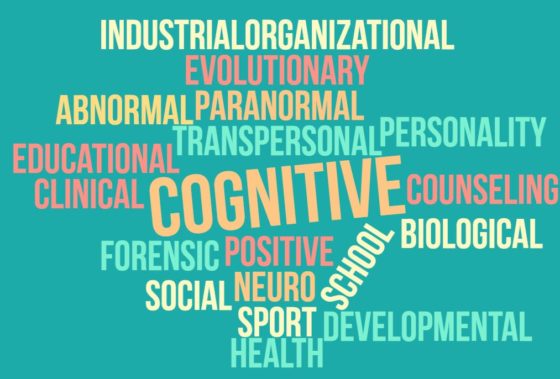No matter what year you are, it is never too early or too “late” to begin considering what you want to do during your time at Roanoke College, in order to stand out to potential future employers or graduate programs. Therefore, whether you are a first-semester freshman or a first-semester senior, there are always things you can be doing on and off campus to prepare you for your future post-grad studies or jobs in psychology.
If you plan to pursue a career or graduate program in psychology then follow this post as a guide to begin building up your resume or CV with experiences that will help you stand out to future employers or programs.

Plan ahead
 You do not need to have your future plans set in stone at any point during your college career, but it may be good to start considering different options and creating plans around those options. That is, look at what courses you will need to take to complete your major/minor/concentration and roughly layout when you will take them. Moreover, consider what you do and do not want to do while in college (e.g., internships, research, study abroad, etc.). This initial planning stage will help you in the long run but is not limited to those in their freshman year.
You do not need to have your future plans set in stone at any point during your college career, but it may be good to start considering different options and creating plans around those options. That is, look at what courses you will need to take to complete your major/minor/concentration and roughly layout when you will take them. Moreover, consider what you do and do not want to do while in college (e.g., internships, research, study abroad, etc.). This initial planning stage will help you in the long run but is not limited to those in their freshman year.
Seniors, planning may look different, but consider different post-grad options and begin looking at what they require. From here, plan out what to do during your final two semesters and post-undergrad to help you get into the job/programs that you are looking into.
Explore options

When considering what you want to do in psychology consider the multiple options available to you. Look into different career paths, graduate programs, or post-grad internships and research opportunities. Do not be afraid to take a gap year after graduating from Roanoke College to explore these options and to gain some more work experience or research/internship experience. There is no specific plan that you need to follow to become a successful psychologist, so look into options to find a plan that works best for you.
Look at expectations/requirements
 If you are looking to enter into a graduate program or a specific job, look at the application requirements and deadlines early on. Even if you have no idea where you want to go or what you want to do, looking into different programs and seeing what they require of applicants is a good start. In doing so, you may find that multiple programs are expecting similar requirements such as research experience or a GRE score. In noticing these commonalities, you can adjust what you are doing to ensure you complete these items on time.
If you are looking to enter into a graduate program or a specific job, look at the application requirements and deadlines early on. Even if you have no idea where you want to go or what you want to do, looking into different programs and seeing what they require of applicants is a good start. In doing so, you may find that multiple programs are expecting similar requirements such as research experience or a GRE score. In noticing these commonalities, you can adjust what you are doing to ensure you complete these items on time.
Get involved

It goes without saying, but getting involved is important to all employers and graduate programs. Whether it be gaining world-experience in the form of internships, study abroad, or jobs, or gaining academic experience in the form of research, honor societies, and a variety of courses, or through being apart of outside activities such as sports teams, and other clubs and organizations, it is beneficial to get involved both on and off-campus.
Consider an internship

An internship is one of the best ways to gain work experience while in undergrad. Not only are internships a way to build connections, they also give you real-world experience, and introduce you into the field you may be interested in. Moreover, they are also beneficial as they can lead you to realize you want to pursue a different path. Do not feel discouraged if an internship leaves you wanting to explore a new area as this is equally as beneficial as an internship that proves to you that you are on the right path.
All in all, internships can help guide you in solidifying your interests as well as showcase to you what your interests may not be.
More information on internships can be found here!
Consider research

If you plan to enter into a graduate program, specifically a Ph.D. track, considering research is highly important. Most graduate programs suggest or require that you have some research experience at hand. While taking quantitative methods and research methods is a good introduction to research, conducting research alongside a psychology faculty or other students is a way to further enhance those skills. Moreover, conducting research can lead you to present at conferences or getting published, which as an undergraduate is a major accomplishment.
More information on the research can be found here!
Consider studying abroad
 While studying abroad is not for everyone, it is a great experience that not only enhances cultural knowledge but leads to self-development. Studying abroad offers a lot of self-development that can be beneficial and will look notable when applying to jobs or graduate programs. There are a variety of study abroad options available, and if you plan ahead early, you can ensure that courses you take while abroad can fill requirements you may need, as well as find a semester where studying abroad works best for you.
While studying abroad is not for everyone, it is a great experience that not only enhances cultural knowledge but leads to self-development. Studying abroad offers a lot of self-development that can be beneficial and will look notable when applying to jobs or graduate programs. There are a variety of study abroad options available, and if you plan ahead early, you can ensure that courses you take while abroad can fill requirements you may need, as well as find a semester where studying abroad works best for you.
More information on studying abroad can be found here!
Reach out to Professors/Advisors

After reading all of these options you may feel lost, which is completely normal! That said, you are not alone and your professors and advisors can be a great resource in guiding you towards your next steps. Reach out to your advisors if you are struggling with where to begin or on what you can achieve during your semesters at Roanoke College. Moreover, reach out to professors that share similar interests to learn more about how they went about applying to programs, finding jobs, or for advice on what specific things you should or could be doing.
Here are current professors specialties and interests:
Dr. Allen: Psychopharmacology and abnormal psychology
Dr. Buchholz: Self, consciousness, evolutionary psychology, and moral decision making
Dr. Carter: Social and personality psychology
Dr. Cate: Cognitive and neuroscience
Dr. FVN: Developmental, social, and educational psychology
Dr. Hilton: Clinical and cognitive psychology
Dr. Nichols: Cognitive neuroscience
Dr. Osterman: Social psychology and evolutionary psychology
Dr. Powell: Developmental psychology
Dr. Wetmore: Experimental psychology and cognitive psychology
More information about specific professors’ interests can be found here!
Start drafting your Resume and cover letter, and/or your CV and purpose statement

If you are interested in pursuing a career or graduate school in psychology then you want to start drafting your CV and purpose statement. On the other hand, if you are looking to go into more general work, you should have an updated resume and cover letter. Whether it be your CV or Resume, these items should be updated when major changes are made, or at least at the beginning and end of each semester, or before they are to be submitted to someone.
Cover letters and purpose statements can be made quite broad to begin with but should always be specified to match the program you are going into.
More information on how to write a CV can be found here!
Refer to the Roanoke College Psychology page for more information
You may still be feeling a bit overwhelmed on where to begin and where to go for information. While the blog will continue to share advice and information on graduate school or post-grad career information, you may also refer to the Roanoke College Psychology Page for more resources and information.

Best of luck to all of you as you continue on your journey towards becoming a psychologist and know that the fifth floor is always cheering you on and here to help (even if virtually)!
.
.
.